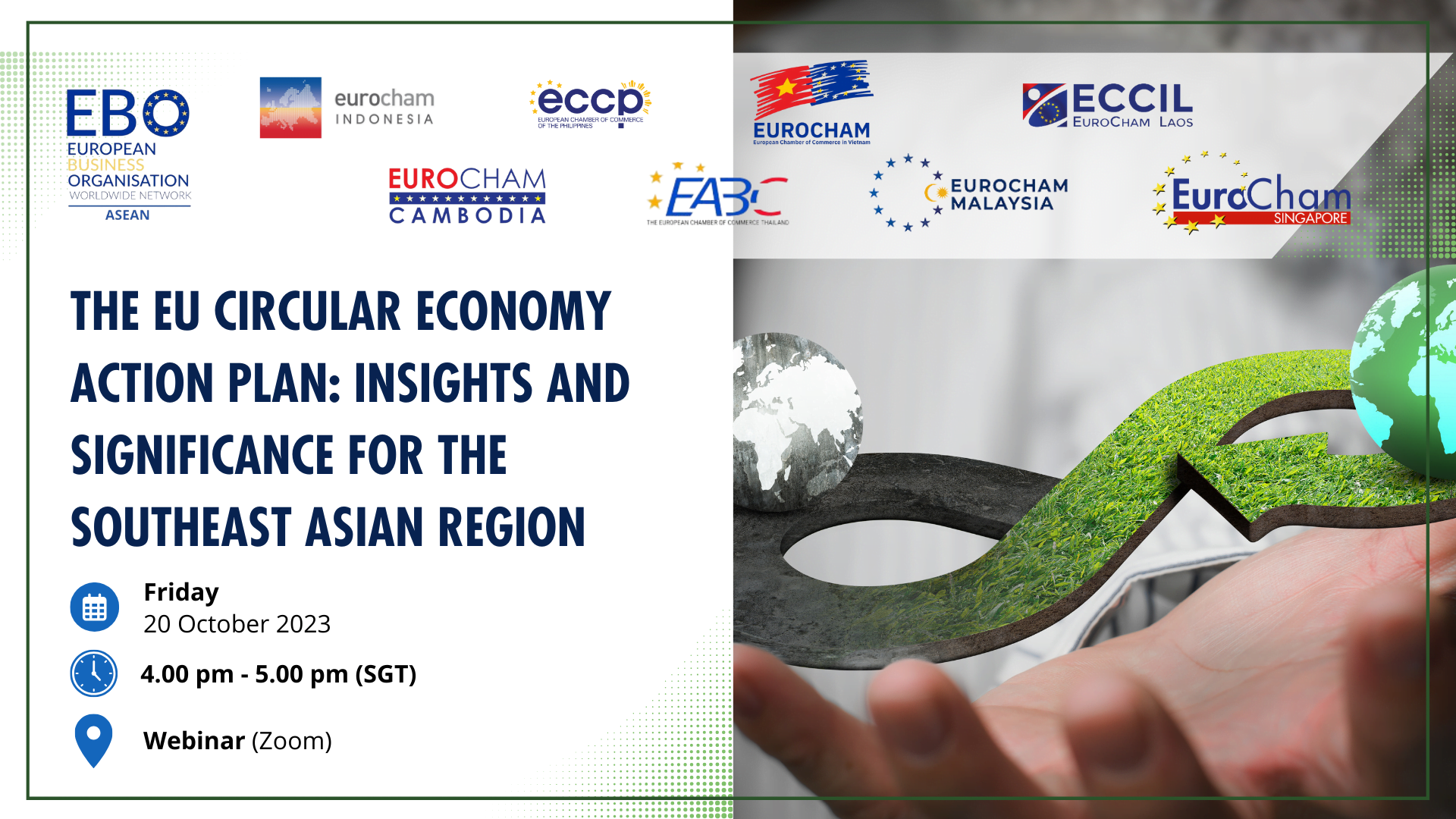
- This event has passed.
The EU Circular Economy Action Plan: Insights & Significance for the Southeast Asian Region

Traditionally, the global economy has been linear – take, make, dispose. However it is reaching its limits and is placing excessive pressure on the environment and jeopardising finite natural resources. Hence, a global transition to a carbon-neutral, resource-efficient circular economy is key to fighting climate change, protecting biodiversity loss while addressing important social needs.
The initial Circular Economy Action Plan of the EU, introduced in 2015, has exerted a significant influence on a global scale. Its vision to shift towards a circular economy will alleviate strain on natural resources, foster sustainable growth and boost job creation. This endeavor is also set to expedite the EU’s ambitious goal of achieving climate neutrality by 2050 while simultaneously curbing biodiversity loss.
